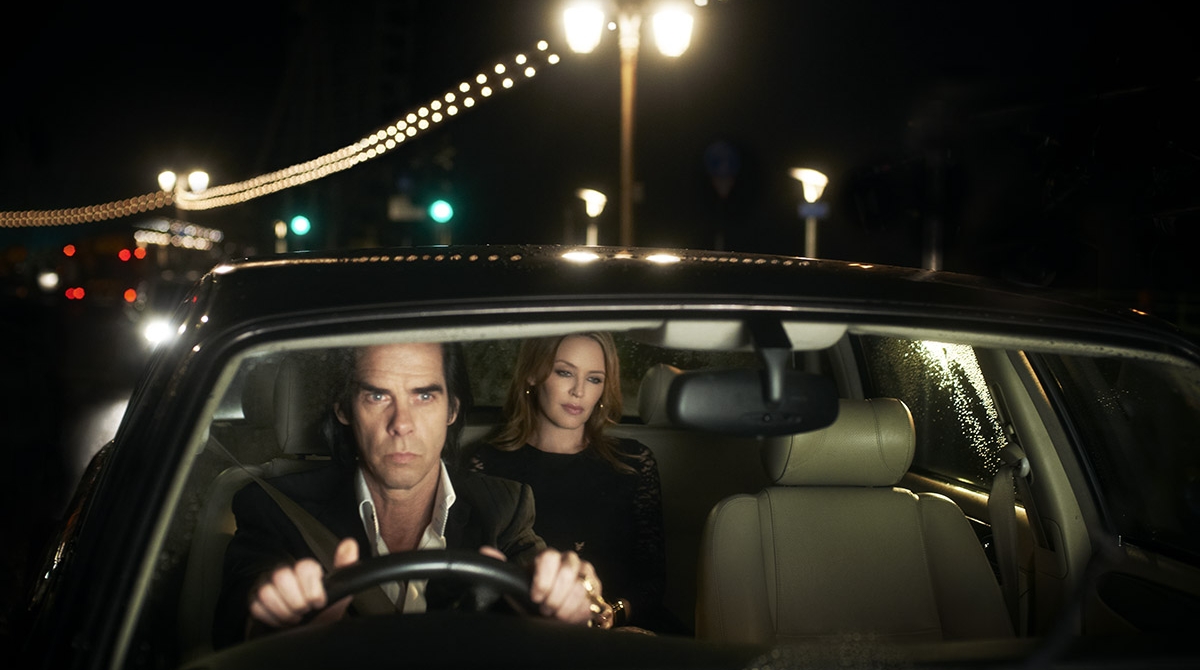What has been the biggest challenge for Carey in putting MIFF together this year? “The vast amount of films out there to watch and keep up with – so many good ones that even with our monumental new extended MIFF14 we couldn’t fit in the program,” she answers. “Plus adapting to the new and different venues. No more carpet burn running up and down the stairs of Greater Union.”
Thinking about Australian films, are there any current trends or influences or themes Carey has noticed this year? “There are always different currents and tendencies, nothing overarching,” she replies. “We do have two time travel films (Predestination and The Infinite Man). Indigenous and indigenous-themed cinema continues to be on the cutting edge.” Predestination, the film chosen to open MIFF, is a film from Queensland made by the Spierig Brothers (Undead, Daybreakers) starring Ethan Hawke, Noah Taylor and Sarah Snook. An Australian made film, Felony, directed by Matthew Saville, closes MIFF. Felony is written by and stars Joel Edgerton, alongside Tom Wilkinson and Melissa George.
Who is the most influential film maker in Australia today? “Ooh tough question! I think in terms of production output, getting projects up and mentoring a newer generation of filmmakers, you can’t go past Robert Connolly (The Turning, Balibo, Paper Planes)”. Any predictions re The Next Big Director? “I think Desiree Akhavan is someone to watch, and also Alex Ross Perry.”
What’s the problem with films screening in other festivals besides MIFF? “Every festival has its own participation rules,” she explains. “Unless it’s a retrospective screening, MIFF requires that the film be a Victorian premiere so it can’t screen in this state before the MIFF screening.”
Just in case it’s true that event organisers are all closet creatives, we ask Carey if she were to make a film, what it would look like and what would what excite her most about making her own film? Which aspect/s of film, e.g., story, cinematography, technical brilliance, aesthetic, characterization, would be most thrilling for her to explore? And is there a film or are there any films in this year’s MIFF that she ‘wished she’d made’? “I am big on aesthetics and cinematography; anything filmy and gauzy with saturated colour gets me,” she answers. “But also a sense of play with the characters. I also love black comedy and admire people who can do it well and subtly. I wish I had made Hard to be a God, but that would be impossible as no one could have made that film except the late Alexei German.”
Was there a personal goal for Carey involved in putting together MIFF 2014? Was there any particular thing she wanted to see happen, aside from the obvious one of creating a successful festival? “I am proud that we will have mounted the screening of Out 1: Noli me tangere, in all its 773-minute, 8-episode, 16 millimetre glory,” she replies. “Knowing there was no subtitled print in the world, and at one point, possibly no print at all, I wondered whether we’d missed our chance. It’s going to be a big deal as we’ll have people subtitling it live at the screening.”
MIFF is not just about film screenings, however. There are opportunities for cinephiles to vigorously engage with the world of local and international cinema. Were the new initiatives, the Critics Campus and the MIFF Premiere showcase, Carey’s ideas? “They were things we’ve always wanted to do but it was thanks to government support that we’re able to. It’s exciting.”
And the classic question – what advice would Carey give to aspiring film makers? “Be innovative, put your personality into what you’re doing and only do what you’re passionate about. Filmmaking is tough and you need energy and to keep positive, but there are opportunities out there and people out there with an appetite for adventurous cinema, so don’t feel you have to play it safe just to get into the industry, unless that’s what you want to do, that’s fine also.”
BY LIZA DEZFOULI







